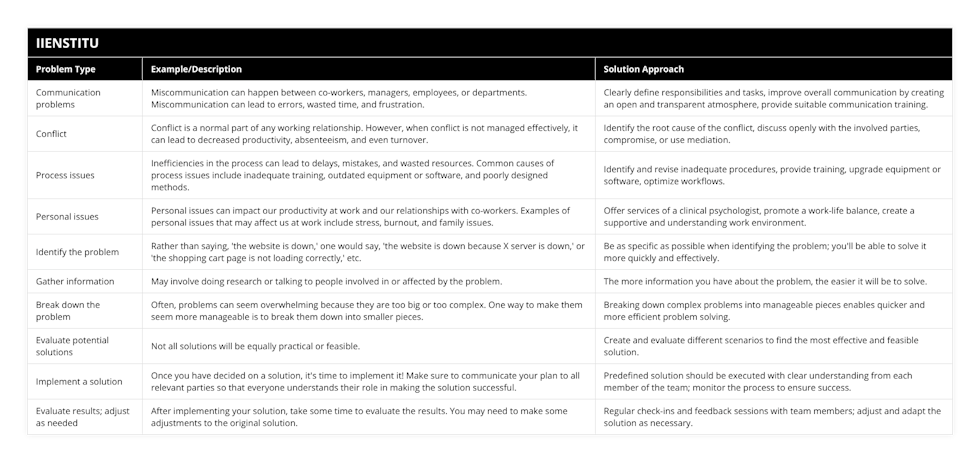Tailoring Expert Services to Meet Client Needs

In today's fast-paced and ever-evolving business environment, the demand for specialized support has never been more important. Professional services, including consulting and legal advice to accounting and IT solutions, play a vital role in driving business growth and operational effectiveness. As organizations navigate challenging challenges, the expertise offered by expert service firms becomes a critical component in achieving strategic objectives and maintaining a competitive advantage.
Comprehending how to customize these services to meet particular client requirements is essential. dysfunctional group work requires recognizing the distinct requirements of individual enterprise, taking into account factors like market conditions and organizational goals. With the appropriate professional services collaborator, companies are able to not only improve their performance but also efficiently mitigate threats and embrace transformation in an ever more technological world. This article investigates the key characteristics to look for in a professional services firm, how to select the best collaborator, and the various ways these services can aid to sustained growth.
A Essential Function of Professional Services
Expert services play a critical role in the development and longevity of companies across various sectors. By providing tailored insight and expertise, these services help organizations tackle complex issues, enhance efficiency, and navigate ever-evolving market conditions. Whether through advisory services, legal advice, accounting, or IT support, professional services offer tailored solutions that enable organizations to innovate and compete successfully.
Engaging with professional services allows organizations to leverage the experience and insights of specialists who stay current with industry trends and best practices. This expertise is essential for addressing regulatory challenges, optimizing operational efficiency, and driving strategic initiatives. As businesses seek to evolve and adapt in a rapidly changing environment, the insights provided by expert service firms become critical assets that can shape decision-making and spur development.
Moreover, professional services contribute to enhancing resilience within companies. By collaborating with professionals who understand their specific needs, businesses can create strategies that not only mitigate threats but also unlock new opportunities. The relationship between businesses and their professional service providers is crucial in supporting long-term success, enabling companies to remain agile and responsive to changes in their fields.
Deciding on the Right Professional Services Partner
Selecting a professional services partner is a crucial decision that can greatly impact your business. To begin with, it's important to ensure alignment on core values and objectives. Look for firms that know your industry and have a history of success with similar businesses. This alignment helps make sure that the partner you choose not only addresses your technical needs but also understands the strategic vision you have for expansion and scalability.
Next, assess the firm's expertise and resources. A reliable partner should possess specialized knowledge that complements your business's requirements. Consider their approach to challenges and whether they employ advanced technologies that enhance service provision. Additionally, review their client portfolio and seek reviews or case studies that showcase their ability to deliver results efficiently. A firm with a demonstrated record can provide the confidence necessary for a prosperous partnership.
In conclusion, communication is vital in any professional association. During initial discussions, pay attention to how the firm communicates and whether they listen actively to your needs. A good partner should foster open dialogues, making sure that there is understanding and transparency throughout the collaboration. This robust communication foundation is essential for addressing challenges promptly and adapting to changing circumstances, which ultimately leading to a rewarding collaboration that meets both parties' expectations.

Significant Trends and Future Directions in Professional Services
The landscape of professional services is continually transforming, driven by technology progress and altering client expectations. One key trend is the increasing reliance on automated solutions and AI. These technologies enhance productivity in routine operations, allowing workers to focus on high-value strategic work. As businesses adopt these tools, they can offer quicker and precise services, which is crucial in a challenging market.
Another significant trend is the stress on specialist services. Clients are in demand of firms that comprehend their specific industry issues and can provide tailored solutions. This trend emphasizes the significance of deep sector expertise, as businesses understand that broad knowledge is no longer sufficient to address complex problems. Consequently, businesses are focusing on specific sectors, developing niche services that tightly fit with client requirements.
Finally, the importance of relationship-building has never been more pronounced in professional services. Firms that emphasize communication and collaboration foster deeper connections with clients, leading to better outcomes. As businesses face uncertainty, having dependable mentors who can provide advice is essential. This trend emphasizes the need for firms to enhance soft skills alongside technical expertise, ensuring that they not only deliver quality services but also create lasting alliances.
